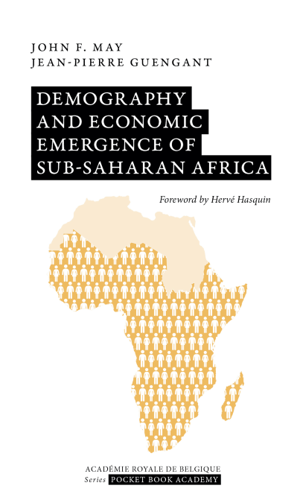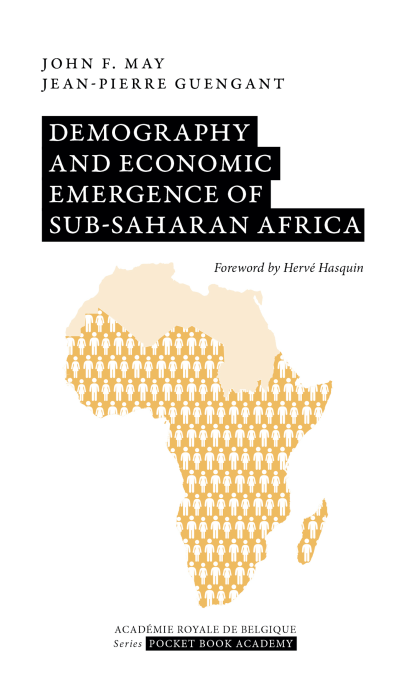
- Retrait gratuit dans votre magasin Club
- 7.000.000 titres dans notre catalogue
- Payer en toute sécurité
- Toujours un magasin près de chez vous
- Retrait gratuit dans votre magasin Club
- 7.000.0000 titres dans notre catalogue
- Payer en toute sécurité
- Toujours un magasin près de chez vous
Demography and economic emergence of sub-saharan Africa EBOOK
John May, Jean-Pierre GuengantDescription
About 35 years later than in the other less developed countries, high mortality and fertility levels have started to decline in the 48 countries of sub-Saharan Africa (SSA). The late completion of the demographic transition in the region, its slow pace, and its population growth rates over 2.5% per year for more than 50 years, render the SSA demographic trajectories very different from the transitions experienced elsewhere in the world.
With the onset of the fertility decline and better economic performance in SSA between 2000 and 2014, most SSA countries thought that they would be able to capture a first demographic dividend and become emerging economies – a process that many East and Southeast Asian countries achieved between 1970 and 2000. However, available data indicates that since the 1960s the rapid population growth in SSA has had negative effects on the growth of its GDP per capita. Moreover, so far there are only fourteen SSA countries, representing 20% of the SSA population, that meet the initial conditions needed to benefit from a first demographic dividend. This volume analyzes the challenges that the SSA countries will need to address in order to replicate the East and Southeast Asian economic miracle. The majority of the SSA countries are at a critical stage in their development. Indeed, the next decades will determine whether or not the SSA countries will be able to accelerate their demographic transition, capture a first demographic dividend, and become emerging economies.
John F. May is a Research Professor at the Schar School of Policy and Government, George Mason University, Arlington, VA, USA. He earned his Doctorate in Demography from the University of Paris-V (Sorbonne). He is a specialist of population policies and the demography of sub-Saharan Africa and has worked on population and development projects around the world for most international organizations.
Jean-Pierre Guengant is Emeritus Director of Research at the Research Institute for Development (IRD), presently attached to the University of Paris-I (Panthéon-Sorbonne). He holds a Doctorate in Development Economics from the University of Clermont-Ferrand, France. His recent work focusses on the demographic dividend and the emergence of sub-Saharan Africa.
Spécifications
Parties prenantes
- Auteur(s) :
- Editeur:
Contenu
- Nombre de pages :
- 144
- Langue:
- Français
Caractéristiques
- EAN:
- 9782803107551
- Date de parution :
- 22-11-20
- Format:
- Ebook
- Protection digitale:
- Digital watermarking
- Format numérique:
- ePub

Les avis
Nous publions uniquement les avis qui respectent les conditions requises. Consultez nos conditions pour les avis.






